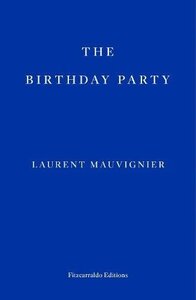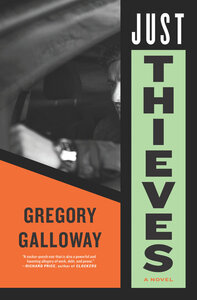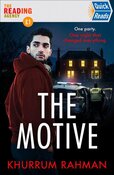Fiction Uncovered, the initiative to highlight the work of established UK authors who may have fallen off the radar, is back for another year. The 2012 list was revealed on Wednesday; unlike last year, I wasn’t able to attend the announcement, but I was still keen to see which titles had been selected. Here are this year’s books (quotations taken from the Fiction Uncovered website).
Peter Benson, Two Cows and a Vanful of Smoke

What the judges say: ‘The tease of a title gradually resolves itself as the delightful comedy of drug-running in rural England plays out. The cartel meets Ambridge.’ – John Sutherland, Lord Northcliffe Professor Emeritus of Modern English Literature at UCL; Chair, 2012 Judging Panel
It’s fair to say that I probably wouldn’t have picked this up if I saw it in a bookshop, though the blurb’s suggestion of a supernatural note is intriguing, and I do like the narrative voice in the extract I’ve read. Looking up Benson’s other books, he seems a wide-ranging author, but with a particular focus on landscape, especially that of Somerset. I think he’s a writer I should investigate further.
Cressida Connolly, My Former Heart

What the judges say: ‘A family saga spanning the second half of the twentieth century, this gentle story of women’s lives in Egypt, Lebanon and the London Blitz is at once tender, comic and wise. Following on from the success of her short stories, My Former Heart marks out Connolly as a novelist to watch.’ – Katy Guest, Literary Editor, Independent on Sunday; 2012 Judging Panel
This is a first novel from Connolly, who has previously published a short story collection and a historical biography. Family sagas aren’t generally my thing, and I don’t feel particularly inclined to try My Former Heart; but I think Fiction Uncovered ought to be broad in scope, so as far as I’m concerned, it’s no problem if not everything on the list appeals to me.
Jill Dawson, Lucky Bunny

What the judges say: ‘With sleight of hand, a little rouge and a mind as sharp as a razor, Queenie Dove does battle with all the Depression, the war and her father have to throw at her. Dawson writes with a pace and humour that is infectious and her cast of characters will stay with you long after finishing the book.’ – Jasper Sutcliffe, Head of Buying, Foyles Group; 2012 Judging Panel
The synopsis makes this sound fun – a tale of wartimeEast Endcrime capers – and the extract suggests a novel with a serious heart; that’s a pretty unbeatable combination when it’s done well, so I think I’ll be taking a look at Lucky Bunny.Dawson’s bibliography suggests she’s another writer whose work covers varied ground, which is always a good thing in my book.
Tibor Fischer, Crushed Mexican Spiders

What the judges say: ‘Small minded readers might object that this is not a novel but two exquisitely packaged short stories. But the stories themselves – sardonic and beautifully chiselled – radiate wonderfully.’ – John Sutherland
Here’s something that wasn’t on last year’s Fiction Uncovered list: a book of short stories. (Admittedly there are only two – printed back-to-back – in this 64-page volume, but still.) Tibor Fischer is one of those writers whose name I know without knowing anything about his work; now I’ve looked it up, his fiction sounds just the sort of quirky stuff I enjoy. This collection could be a good place to start.
Doug Johnstone, Hit & Run

What the judges say: ‘The whole panel were impressed with the non-stop energy of Hit & Run. Just when you think his protagonist has no further left to fall, he makes another crazy decision that amps up the suspense to an even greater level.’ – Matt Thorne, writer and Head of Creative Writing at Brunel University; 2012 Judging Panel
I felt that last year’s Fiction Uncovered list missed a trick by not including any ‘genre fiction’, so it’s nice to see titles like My Former Heart and this thriller being selected now. Hit & Run sounds like a book which delivers the goods as a thriller whilst also offering something more substantial in its characterisation; that would be a good combination of attributes.
Susanna Jones, When Nights Were Cold

What the judges say: ‘A delightful adventure full of feisty women, mountaineering, all kinds of escape and Edwardian derring-do, this is narrated by a classic unreliable narrator who looks back on friendships gone catastrophically wrong among the peaks of theAlps. Jones’s fourth novel deserves to put her on the literary map.’ – Katy Guest
I read one of Susanna Jones’s earlier novels, The Earthquake Bird, a couple of years ago, and rather enjoyed it. The contemporary Japanese setting of that book is quite different from the early twentieth-century British and Alpine background of When Night Were Cold – but, as should be clear by now, I like variety in an author’s oeuvre. And I have a soft spot for books with unreliable narrators, so this could be good.
David Park, The Light of Amsterdam

What the judges say: ‘From the problems between fathers and sons to the perils of going to see Dylan in his dotage, this is a deep and richly pleasurable reading experience. Park depicts the frustrations and excitements of everyday life with equal clarity.’ – Matt Thorne
I first heard of David Park in an article from last year in which various writing and publishing types were asked to name writers they thought deserved more attention (frustratingly, I can’t find the link) – and now here he is on the Fiction Uncovered list. I’d like to read one of his books, but can’t honestly say that the synopsis of The Light of Amsterdam sounds interesting to me; perhaps I’ll try a different Park title.
Dan Rhodes, This Is Life

What the judges say: ‘Using his trademark dark humour Dan Rhodes draws his protagonist Aurélie Renard, and the reader, deep into the heart of the most romantic city in the world, Paris. Rhodes explores art, politics and modern life, with hilarious and enlightening results.’ – Jasper Sutcliffe
Now here’s a writer who I know deserves a wider audience. I’ve read and greatly enjoyed Rhodes’s previous two novels – Gold is especially good – but have heard mixed things about his Paris-set latest, that it might not have the spark of his others. Still, this is Dan Rhodes we’re talking about, and I’d never dismiss one of his books without reading it. I’ll probably read Timoleon Vieta Come Home first, mind.
You can find the Fiction Uncovered titles on display in a bookshop near you.
Elsewhere
Read Simon’s take on the list over at Savidge Reads.
Like this:
Like Loading...



















 This is the first book I’ve read for the
This is the first book I’ve read for the  I read The Rapture in advance of this week’s
I read The Rapture in advance of this week’s
Recent Comments